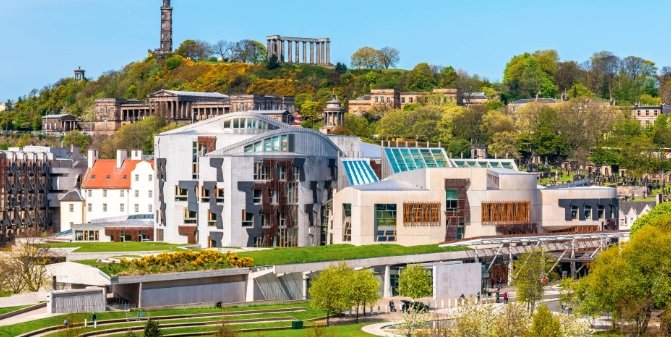The Scottish Parliament marks 25 years since its creation in 1999, a milestone that promised better governance for Scotland within the UK. A new survey reveals sharp drops in public trust toward the Scottish Government, alongside steady support for independence, highlighting evolving attitudes in the nation.
Origins of Devolution and Early Expectations
Devolution arrived in Scotland with high hopes back in 1999. Lawmakers aimed to address local needs through a new parliament in Edinburgh, keeping Scotland tied to the UK while giving it more control over key issues like health and education. Supporters believed this setup would prove the Union could meet Scottish demands without pushing for full separation.
Many saw the parliament as a way to heal old divides from the 1707 Union. Unionists thought it would strengthen bonds by showing effective rule from within the UK. Nationalists, however, viewed it as a step toward proving Scotland could stand alone. The Scottish Social Attitudes survey, started that year, has tracked these views ever since, offering a clear picture of how opinions have shifted.
Early data showed strong backing. In 1999, 81 percent of Scots trusted the government to act in the country’s best interests. People felt optimistic about local decision-making, with the parliament seen as a fresh start after years of rule from London.

Identity Shifts: Scottish Pride Endures
Over 25 years, most Scots still see themselves mainly as Scottish, a trend that has held steady since devolution began. This strong national identity has not faded, even as the parliament handles more daily matters. Yet, the sense of Britishness has not weakened much either, contrary to fears that separate institutions would pull Scotland away from the rest of the UK.
Attitudes on big issues like welfare and the environment show little gap between Scotland and England. For instance, views on climate action remain similar across borders. This suggests devolution has created a distinct space for debate in Scotland without causing a full break in values.
Experts note that while Scottish identity dominates, about a third of people also claim a British side. This mix helps keep the Union stable, even amid political tensions. Recent events, like Brexit, have tested these ties, but the survey finds no major long-term drift.
Declining Trust in Government Performance
Public faith in the Scottish Government has fallen sharply in recent years. The latest data shows only 47 percent of Scots trust it to do the right thing for the country, the lowest figure since 1999. This marks a clear drop from 61 percent in 2019 and way below the 81 percent at the start.
Just 38 percent now say the government listens well to people before deciding, a low not seen since 2006. Satisfaction with services like the NHS has also slumped to 22 percent, matching levels in the rest of Britain. These trends tie into broader worries about economic growth and public services after the pandemic.
| Year | Trust in Scottish Government (%) | NHS Satisfaction (%) | Support for Independence (%) |
|---|---|---|---|
| 1999 | 81 | 45 | 27 |
| 2019 | 61 | 50 | 45 |
| 2024 | 47 | 22 | 47 |
This table highlights key trends from the survey, showing how trust and satisfaction have declined while independence views hold firm.
Factors like handling of health crises and budget pressures play a role. For example, the 2023 survey noted 69 percent felt NHS standards had worsened. These issues make people question if devolution delivers as promised.
- Key reasons for low trust include slow progress on housing and education goals.
- Economic uncertainty post-Brexit has added to doubts about government plans.
- Younger voters show even less faith, pushing for more accountability.
The Independence Question After a Quarter Century
Support for Scottish independence stands at 47 percent in 2024, up from 27 percent in 1999 but steady since recent highs. Devolution has not killed the idea, as some hoped, nor exploded it as others feared. Instead, it keeps the debate alive without settling it.
Many now see the parliament as a middle ground, but frustrations grow when it fails to fix problems. The survey suggests identity ties into this, with stronger Scottish identifiers more open to leaving the UK. Yet, no big surge in pro-UK feelings has emerged either.
Recent polls echo this balance. In 2021 elections, independence parties won big, but trust issues hurt their image. The 2026 Holyrood vote could test these views further, especially with talks of more powers or reform.
Looking Ahead: Challenges and Opportunities
As Scotland enters the next 25 years, devolution faces tests on trust and unity. The survey warns that without gains in public services, support for the status quo could erode. Yet, the lack of deep divides with England offers hope for compromise.
Lawmakers must tackle root causes like inequality to rebuild faith. Events like the King’s recent speech at Holyrood stressed ongoing work on climate and economy, key to public mood. Balancing local control with UK ties will shape the future.
Readers, what do you think of these shifts in Scottish attitudes? Share your views in the comments below and spread the word on social media to join the conversation.


















